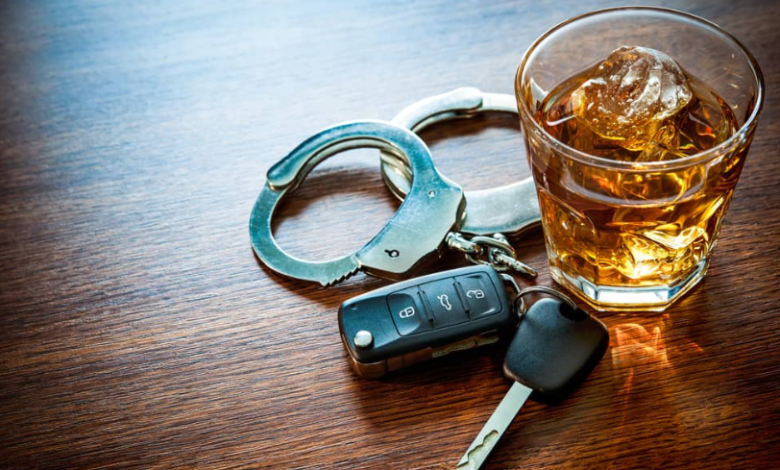How the Drinking Age Is Enforced in Georgia — and What Happens If You’re Caught

Every young person (or parent of one) should understand that Georgia enforces a strict legal drinking age: 21. But what does that really mean? How strictly is the “drinking age in Georgia” applied, and what legal consequences could a minor face if caught with alcohol? Below is an overview of Georgia’s underage alcohol laws, defenses, and the serious implications one mistake can bring.
Legal Basis: O.C.G.A. § 3‑3‑23 and Minor in Possession (MIP)
Under Georgia law, O.C.G.A. § 3‑3‑23 makes it illegal for anyone under 21 to do any of the following:
- Purchase, attempt to purchase, or knowingly possess any alcoholic beverage;
- Misrepresent age or identity to get alcohol;
- Use a fake ID to obtain alcohol.
Georgia’s courts and prosecutors enforce these laws as misdemeanors. Even without actual consumption, mere possession or attempted purchase may suffice.
Exceptions & Limited Allowances
Georgia law does include a few narrow exceptions, though they don’t apply broadly:
- A minor may possess alcohol at their parent or guardian’s home, if given by the parent/guardian and present when the possession occurs.
- Alcohol used for religious ceremonies is generally exempt.
- Possession for medical purposes under a physician’s prescription may also qualify.
- Minors working in licensed establishments (like restaurants or stores) may handle or serve alcohol in the course of their employment—though often with age minimums (e.g. 18).
These exceptions are quite limited, and many underage possession cases don’t qualify.
How Is Enforcement Done?
1. Minor in Possession (MIP) Charges
If law enforcement finds a minor with alcohol (in hand, bag, car, etc.), they may charge them with MIP under § 3‑3‑23. The mere fact of possession—even without proof of drinking—can lead to charges.
2. Zero Tolerance for Underage Drivers
Georgia has a “zero tolerance” policy for drivers under 21: any detectable amount of alcohol in their system can lead to DUI or equivalent charges—even if the level is low and they aren’t visibly impaired.
3. Fake ID / Misrepresentation
Using a fake ID or lying about your age to obtain alcohol is itself prohibited under the same statute.
4. Driver’s License Sanctions
A conviction for MIP can result in suspension of a minor’s driver’s license.
Penalties & Consequences
The legal and collateral consequences of an underage alcohol offense in Georgia can be serious—even for first-time offenders.
First Offense
- Up to $300 in fines
- Up to 6 months in jail (though typically courts use lesser sentences)
- Driver’s license suspension for six months (no limited permit available)
- Required alcohol education / awareness classes or risk reduction programs
- Community service, probation, court costs
Second or Subsequent Offenses
Penalties grow steeper:
- Fines may increase to $1,000
- Jail time can be up to one year
- Longer license suspension, possibly up to one year
Additional Consequences
- Permanent criminal record (in many cases)
- Negative effects on college admissions, scholarships, professional licenses, employment, or background checks
- Insurance premium hikes or future denial of coverage in some cases
- School or campus disciplinary actions if the offense occurred in or is known to educational institutions
See also: Negotiating a Discrimination Settlement? What to Demand With a Lawyer’s Help
Defenses & Mitigation Strategies
If a minor is charged under Georgia’s underage alcohol laws, there are defense strategies and legal options that may help reduce or avoid severe consequences.
1. No Actual Possession / Control
One defense is showing the minor neither possessed nor controlled the alcohol (i.e. they were unaware it was there). Constructive possession (alcohol nearby but not directly held) is often contested.
2. Illegal Search or Seizure
If the evidence (alcohol) was obtained via an unconstitutional search—without probable cause, valid warrant, or lawful stop—a motion to suppress the evidence may succeed.
3. Exceptions Apply
If the minor meets one of the statutory exceptions (e.g. in parent’s home, parent present, religious use, medical prescription), that may negate the charge.
4. Diversion, Conditional Discharge, or First-Offender Programs
Many jurisdictions offer programs for first-time offenders to complete requirements (education, community service) in exchange for dismissal or non-conviction outcomes.
What You Can Do If You’re Caught
- Contact an attorney immediately — time is of the essence, especially for diversion or avoiding default judgments.
- Be careful with statements — do not admit to possession or consumption without legal advice.
- Check whether diversion or dismissal options exist — these may keep a conviction off your record if you successfully complete conditions.
- Attend all court dates, educational programs, and comply with orders — failing to do so can worsen consequences.
- Work to protect your driver’s license — legal advocacy may help avoid or reduce suspension.
Georgia’s enforcement of the drinking age is not just a symbolic law—it’s backed by misdemeanor penalties, driver’s license suspensions, and real long-term consequences. Even a first MIP charge should be taken seriously.
If you or someone you know is facing a charge for underage possession or consumption in Georgia, it’s critical to seek legal guidance quickly. The Ghanouni Teen & Young Adult Defense Firm specializes in defending young people in criminal matters and understands how to navigate MIP cases, protect records, and seek the best possible outcomes under these state laws.





